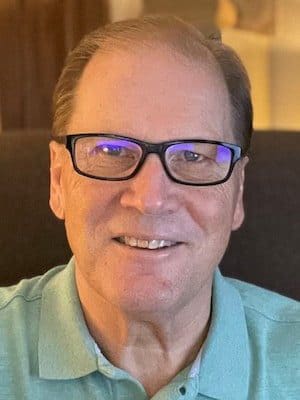What does God expect of me? How does he want me to live?
All of us struggle at times as we seek to live our faith, and the prophet Ezekiel offers a challenging answer to these questions.
Her prophets whitewash these deeds for them by false visions and lying divinations. They say, ‘This is what the Sovereign Lord says’ – when the Lord has not spoken. The people of the land practice extortion and commit robbery; they oppress the poor and needy and mistreat the foreigner, denying them justice. “I looked for someone among them who would build up the wall and stand before me in the gap on behalf of the land so I would not have to destroy it, but I found no one.”
– Ezekiel 22:28-30
I must confess that I have spent a lot of years in my ministry with a muted voice.
Almost like I pressed the mute button on my television, I have often been silent when I should have spoken. I have failed to find my voice when I should have cried out for those who have no voice.
My mother says I was one of the loudest of her eight children. When I was growing up, no one had a problem hearing me. Yet, when I became a man, sometimes at the most important moments I seemed to have lost my voice.
After more than 40 years of ministry, I am still learning and discovering what it means to live my faith and to use my voice.
I have preached thousands of sermons and taught hundreds of lessons. I have tried to care for those in need, and I have sought to lead the churches I served to do the same.
We were much better at direct service ministries than we were at addressing the systemic problems in our communities. We fed the hungry, but we rarely addressed the systems that created poverty.
Sadly, I am not the only follower of Christ who has found it difficult to speak up.
Ezekiel speaks a prophetic word when he says, “The people of the land practice extortion and commit robbery; they oppress the poor and needy and mistreat the foreigner, denying them justice.”
He also says God “looked for someone who would stand in the gap … and found no one.” What a sad statement.
So much of religious life becomes hollow and empty when it is not tied to calls for justice in our world. Maybe there is no clearer statement of this than the words of Amos.
I hate, I despise your religious festivals; your assemblies are a stench to me. Even though you bring me burnt offerings and grain offerings, I will not accept them. Though you bring choice fellowship offerings, I will have no regard for them. Away with the noise of your songs! I will not listen to the music of your harps. But let justice roll on like a river, righteousness like a never-failing stream!
– Amos 5:21-24
In the past 10 years, I have begun to use my voice to call for justice.
I have been mentored and encouraged by several other ministers and friends as I have learned God can use our lives to change our world.
I have been a part of Missouri Impact, an interfaith organization, which speaks and acts for justice in our state.
Over the past few years, I have been a part of Missouri Faith Voices (MFV), and I am currently serving as president of the MFV board.
MFV is a new statewide network of faith-based organizing groups and congregations.
We help congregations listen to their congregational members and their larger community as they seek to identify needs and opportunities to work for justice.
We help congregations organize for more effective ministry and advocacy efforts.
We encourage congregations to collaborate with other faith groups to addresses needs and issues in their communities.
Systemic change is difficult, but God can use people of faith to make a real difference in our world.
If you are looking for a place to serve where you can work on real problems that impact the lives of the most vulnerable in our communities, I encourage you to explore your place in faith-based, organizing groups like these.
Jim Hill is executive director of Churchnet – A Baptist Network Serving Churches. A version of this column appeared previously on his blog, Our First Priority, and is used with permission.

